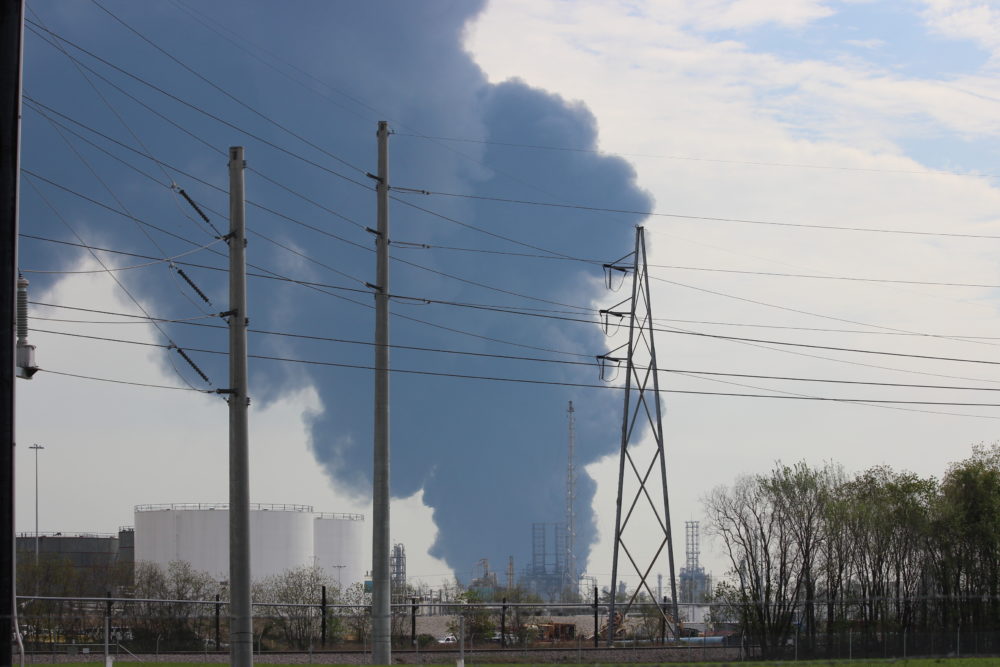The fire at the petrochemical storage company, International Terminals Company, or ITC, burned for four days last week at the port of Houston, sending a plume of smoke a mile above the city, releasing toxic chemicals into the air and water, and closing the port to ship traffic until Monday. Now officials are starting to tally the full cost of the calamity.
Joe Carroll, Houston bureau chief for Bloomberg News says the immediate crisis is over, but the Coast Guard is still proceeding with caution to make sure the port is safe. Currently, only limited daylight shipping is allowed.
“There was actually a cloud of benzine of the Houston Ship Channel for a while there, so you could imagine how awful it would be for a crew on a ship to pass through,” Carroll says. “There was another benzine alert early Tuesday morning that forced some companies to take shelter.”
The cleanup process includes skimming boats removing byproducts from the water. On land, Carroll says damaged tanks must be drained, and large pools of “highly volatile” chemicals must be vacuumed.
“That’s the really challenging part because these chemicals are so flammable that it doesn’t take much for them to light,” Carroll says.
The port closed to protect people from the cloud of benzine, and to keep boats from stirring up more chemicals in the water. Carroll says no one is confident enough in estimating when shipping will be back to normal.
“Given the crowded place that this happened and the chemicals themselves involved, it’s really an unprecedented sort of effort,” Carroll says.
Now, with toxic clouds of benzine and other chemicals hanging over Houston, Carroll says more than 1,000 people have sought treatment for health issues related to the incident.
“When the fire was still burning, and it was a mile-high black plume over the city of Houston, was actually the safest time,” Carroll says.
While the attorney general’s office, the State of Texas and Harris County officials are filing suit against ITC, it is not known whether the company will try to rebuild the plant.
“They are owned by an enormous Japanese company called Mitsui which so far has been completely silent on this incident,” Carroll says.
Written by Sara Schleede.
















